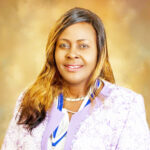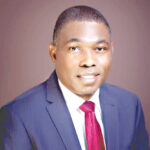Yusufu Turaki is one of the prominent leaders in the Middle Belt, a professor of Theology and Social Ethics, and one-time National Vice President of the Christian Association of Nigeria (CAN). In this interview by ISAAC SHOBAYO, Professor Turaki speaks on the economic policies of the President Bola Tinubu-led administration, the economic hardship in the country, the bill on the parliamentary system, among other topical national issues.
What is your assessment of the state of the nation, especially the economic policies of the President Bola Tinubu administration?
The current state of Nigeria is a result of not just economic policies, which you have singled out.
Nigeria’s nation-building, national integration, development, and transformation have not been easy or made possible by certain major fundamental obstacles. The root problems of these obstacles are that Nigeria has not developed national values, standards, ideals, an acceptable code of conduct, and a general social and work ethic for all Nigerians. Nigerians simply work and walk at cross-values because of their diverse backgrounds in terms of ethnicity, regions, religions, and cultures. These diverse primal and fundamental social factors have not been integrated with the goal of developing common values and structures for peaceful co-existence, harmony, and national unity. Nigeria fundamentally lacks a national ethic that can drive national integration, nation-building, national development, and transformation. The historic Nigerian ethical structure constructed by the British colonial administration and the subsequent constitutions and national political structures and practices have not harmonized the diverse ethnic, regional, religious, and cultural groupings in Nigeria. Rather, Nigeria’s national psyche has built internal latent hostilities and suspicions between and among these diverse grouping. For this reason, national cohesion, unity, peaceful and harmonious coexistence, nationalism, and patriotism could not evolve, but the nagging divisiveness and the emergence of negative social values and formations.
The current state of affairs is the result of Nigeria lacking fundamental foundations of socio-political and economic values and structures for creating economy and wealth. The social, political, and economic hardships of Nigerians today are rooted in these, resulting from a lack of transformational political leaders. In summary, we need to have a comprehensive view of what is happening to all Nigerians today, especially the economic hardships.
Given such a diverse and divisive Nigerian social environment, What economic policy or political system would work for Nigeria?
Economic or political policies as formulated and implanted are trial and error. It may work, or it may not work. It may not be accepted, whether it is good or bad. Political ideologies are what people use to judge policies. And this is how Nigerians judge and interpret the economic policies of President Bola Tinubu.
The hardship in the country is hitting hard with many Nigerians experiencing shortage of food and high cost of living. What do you make of this?
You mentioned shortage of food. The question is, what caused the shortage of food in Nigeria? My good friend, Professor I.L. Bashir, in his forthcoming book, ‘River Basin Development Authorities (RBDAs) and the Agrarian Question: In Northern Nigeria: A Socio-Economic Assessment 1970–2020’, explains through in-depth research how Nigeria has mismanaged the agrarian question, resulting in the destruction of agriculture and northern society. Non-state actors like Boko Haram, Fulani militia, bandits, kidnappers, and Jihadists have invaded northern society, stopping farmers and community life from thriving. Bad agricultural policies and insecurity are major factors responsible for shortages of food and hunger in the North. There are two basic questions before Nigerians: the agrarian question on the creation of effective and viable government agricultural policies and the handling of insecurity as an effective government strategy. It is ironic for far northerners to cry of hunger and hardships, while for decades they have destroyed their agrarian ecology and have created for themselves terrorism, jihadism, banditry and kidnapping, and the monumental and endemic corruption of political and religious leaders. These are the social factors that are causing hunger and hardships in the Far North, not Tinubu’s economic policy today.
You also mentioned high cost of living. This is rooted in the creation of the economy and wealth. By and large, soon after independence, Nigerians gradually moved from creators of economy and wealth to consumerism of products produced by non-Nigerians. We have long ceased to be producers and industrialists, but movers of services and insatiable consumers. We have abandoned industrialization and the production of goods and products and opted for services and importation. In the 1960s and mid-1970s, the naira was one of the strongest currencies in the world. Today, the naira has been devalued by international market forces. The naira has lost its purchasing power, leaving Nigerians with high inflation and high costs of goods. The great fall of the naira. Nigeria is yet to root out endemic corruption that has eaten deep into the national fabric. The rot of corruption in government, public, and private institutions needs both political and economic surgery. It needs both social and spiritual exorcism. Morality and ethics in all Nigerian will have to be reinstated. When the conscience of the people has become dead, it needs redemption.
Instead of crying and wailing because of the shortage of food and economic hardships, Nigerians ought to be confessing their sins, wickedness, greed, lust, selfishness, and vain glory and pride. Our present woes are not necessarily caused by our assumptions that the president is the culprit. Our state of misery now has been a long walk over time.
We can only blame ourselves for a lack of a viable and conducive economic policy for creating the economy and wealth. Nigerians need to be trained on how to transform the Nigerian environment into one that creates wealth, a healthy environment and happy people. The misery of an average Nigerian is related to the high cost of living.
Nigeria needs to formulate, develop, and execute a new viable and conducive economic plan for contemporary and future Nigeria.
Do you support the bill on the parliamentary system, and why is the presidential system not working in Nigeria?
This is an interesting question for Nigerians to address. Permit me to address this question based on my experience at one conference in the Netherlands in 2001. My paper addressed the question: Is Democracy the Ideal Universal Political System? Can American democracy and the presidential system be advocated as the ideal universal political system for Nigeria? Could this American political system, and the British parliamentary system be nothing more than the pressures of western hegemony? Because of our cultural background, we have to differ in our interpretations of social history and political philosophy and also in our understanding of the concepts of democracy, presidential and parliamentary systems, and their universal application.
For Nigeria, the British imposed the parliamentary system. But on their own window shopping, Nigeria adopted the American presidential system. Since Nigerians have experimented with the two systems, they can draw conclusions about the pros and cons of each. The would-be debates will be on the pros and cons. I will wait until Nigerians have exhausted the pros and cons of each system. It would be premature for the National Assembly to sponsor a bill, debate it, and approve it only in the House for a parliamentary system without a referendum or the input of Nigerians.
Some Nigerians are of the opinion that a new constitution and restructuring should be on the front burner at the moment, not the parliamentary system, as being muted by some federal lawmakers. Do you subscribe to this notion?
Constitution-making and restructuring are much bigger and more delicate than what the National Assembly has been doing fruitlessly, amending the constitution for years. A credible and acceptable constitution of a country or nation is not fashioned by an assembly. That is not their business, but that of the federating units, the ethnic nationalities that constitute Nigeria. A national constitution would invariably address the nagging question of restructuring. The 1999 Constitution of Nigeria did not represent the federating units of Nigeria but was foisted on us by the military, just as British colonialism was imposed upon Nigerians. If it is a matter of restructuring, the 2014 National Conference under President Jonathan has given Nigeria a measure of needed restructuring. All Nigerians should advocate for a new constitution to be the work of the Federating Units of Nigeria. Invariably, the question of the parliamentary system would have been answered. The political, religious, and economic manipulations of Nigerians and the monumental and endemic corruptions by the privileged few are deeply rooted in the fraudulent 1999 Constitution. The current socio-political upheavals, crises, conflicts, and economic downturn cannot be resolved without a new constitution based on the federating units of Nigeria.
Who is afraid of a new constitution and restructuring? They are the privileged ones who are benefiting from the 1999 Constitution. The major problem in Nigerian constitution-making is elitism: those who claim to speak for others based on their assumed educational status.
What are the low-hanging fruits that can assuage the hunger and hardships in the country?
Hunger and hardships are the products of a lack of productivity among Nigerians and also of a lack of moral character among the general population of Nigerians. Men and women of integrity, honesty, sincerity, truth, and wisdom are too few to make a change in Nigeria. We live in a country dominated by a trilogy of people whose moral character is dominated by: self-centeredness and pride, greed and lust, and anxiety and fear, political, religious, and social leaders who are dominated by these human vices will definitely run the governments, institutions, and societies aground. Nigeria is either reaping or eating the fruits of corruption and hardships imposed on them by corrupt and lawless leaders.
WATCH TOP VIDEOS FROM NIGERIAN TRIBUNE TV
- Let’s Talk About SELF-AWARENESS
- Is Your Confidence Mistaken for Pride? Let’s talk about it
- Is Etiquette About Perfection…Or Just Not Being Rude?
- Top Psychologist Reveal 3 Signs You’re Struggling With Imposter Syndrome
- Do You Pick Up Work-Related Calls at Midnight or Never? Let’s Talk About Boundaries






